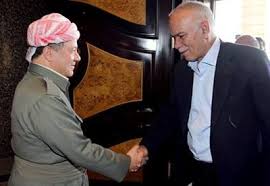By Mufid Abdulla:
On 18th September 2013 Nawshirwan Mustafa, leader of the Gorran movement, told the crowds at a large rally in front of the Gorran headquarters in Suli city that they would have to earn political power and that it would not just be given to them by the two ruling parties. In the elections three days later Gorran won 24 seats, compared to 25 previously, but it also increased its share of the vote and became the second biggest party in Parliament, after the Kurdistan Democratic Party (KDP). In these circumstances Gorran needs to carefully consider its next steps. It should consider the history of coalition governments around the world and think strategically about how the party can best serve the interests of the people who voted for it.
A small example comes from my experience of a Liberal Democrat councillor in my local area in the UK, who told me that, when a coalition government with the Conservative party was announced in 2010, some people spat at him in the street and others threw eggs and tomatoes at the windows of his home. The reason was that the Liberal Democrats had made considerable concessions to their underlying principles and betrayed their own programme. Political observers in the UK predict that as a result of this, at the next UK general elections in 2015, the Liberal Democrats will not win even half of the votes they secured in the last elections.
There are similarities with the situation between Gorran and the KDP; they do not see eye to eye in their beliefs and it is for this reason that Nechervan Barzani and Masud Barzani want an assurance from the Gorran leadership that they are not going to join the next government and then abandon it mid-term. Nawshirwan Mustafa, the leader of Gorran, informed his colleagues after visiting Barzani at his headquarters that he had secured an agreement to set up a coalition government which will aim to implement reforms and combat corruption. But the Gorran movement’s strategists should be profoundly concerned about the trouble that could be looming ahead in 2014. Gorran is not in a position to implement a programme of legislation to transform failing public services and revive a broken economy – where, for example, there are people receiving four or five official salaries from different government departments. Implementing reforms is much harder than announcing them. The agreement with the KDP has been made ‘in principle’ but not on paper. If the KDP reneges on the agreement this will raise the question of whether the the Gorran leader will break free from the coalition. I doubt it.
Gorran is very new to this game and hungry for posts in the government. However, Gorran needs to rely more on more agitation and on applying the pressure of the masses to this corrupted government. The recent upheavals in the towns of Said, Sadq, and Balak are further examples of the fact that this current administration is incapable to meeting the needs of the people. In the Suli area, the Patriotic Union of Kurdistan (PUK) is finished as a political institution and is only surrounded by some businessman using the title for their own purposes; most of the intellectuals inside the PUK have already run away from it. The political equation is not too difficult for Gorran to solve. The votes they have gained over the last two elections are from voters who had supported the PUK in the past but who, because of the PUK’s attachment to the KDP and evident corruption, have decided to vote elsewhere,
Historically, new governments do not always undo the work of their predecessors. In the UK, for example, in 1951 the incoming Conservative prime minister Winston Churchill left basically unchanged the achievements of Clem Atllee’s great reforming administration of 1945-51. After 1997, Tony Blair did not seek to challenge the ‘Thatcher revolution’. And the current British Labour Party leader, if he wins in 2015, will continue to administer the welfare reforms of the Tory/Clegg government. Gorran currently is not in a position to implement great changes because of its minority status in parliament and also the weakness of its leadership.
In India peasants have no choice but to vote for landlords in their areas: otherwise they will lose their field work. In the Dhouk and Zhako areas it is similar to the Indian feudalism system: people are dependent on the KDP for their livelihoods. But in Suli the voters are more volatile and can change quickly. If Gorran fails to deliver reforms in a coalition government, its supporters can easily turn elsewhere. Rather than chase a few government posts, Gorran should instead concentrate on building its base of support amongst the masses until it wins a majority of seats in parliament.
Gorran needs to continue challenging the ruling powers just as the opposition did in South Africa in 1990, when the nation was boiling for social revolution during a period of civil war in parts of the country and when, only by releasing Mandela, did the authorities manage to ‘save’ the country from social revolution. The majority of South Africans had suffered for a long time from corruption and inequality. Eventually the Pretoria government realised that, while it was impossible to maintain white rule, blacks could rule blacks and the whites could still retain most of their privileges. After the 1994 elections the white minority did not lose their land and properties due to Mandela’s concessions. In my eyes, the KDP is making Nawshirwan Mustafa drink from a poisoned chalice and using him to postpone the social revolution which is inevitably on its way in the south of Kurdistan.
.jpg)



